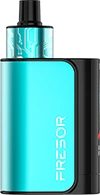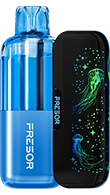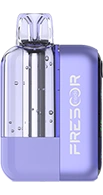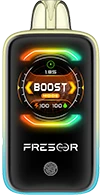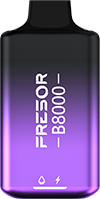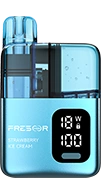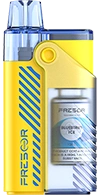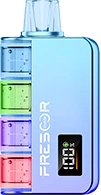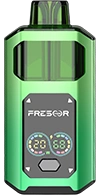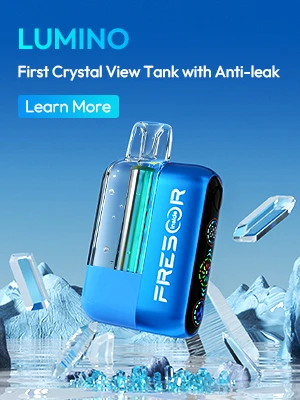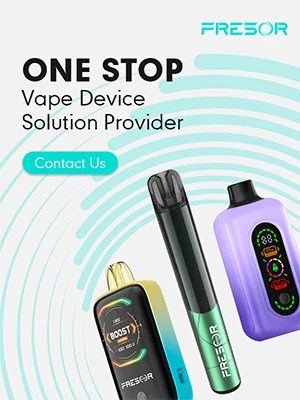Vaping Laws in North Carolina: What You Must Know in 2025

14 May 2025

E-cigarettes or vapes are classified as tobacco products in North Carolina. The state has shown strict actions, including the 2017 New Hanover Ordinance that required sellers to distribute vapes in child-resistant packaging. North Carolina (NC) implements strict laws. This article will provide you with information on all the recent legislative changes and laws regarding vaping in this particular region.
Federal vs. State Regulations
Given the nature of the products, the government of the United States, particularly the U.S. Food and Drug Administration (FDA), has started a strict crackdown on retailers regarding the unauthorized selling of vapes.
In the U.S., closed-system devices like pods, vapes, and cartridges cannot have flavors other than tobacco or menthol. The federal law also states that manufacturers must obtain FDA approval for products, which is also enforced by North Carolina’s new PMTA registry.
Federally, the legal age for buying and selling vapes is 18 years. However, the state of North Carolina has recently decided to change this limit.
Do You Need a License to Sell Disposable Vapes in North Carolina?

Yes, you do need to get a license to sell disposable and other types of vapes in North Carolina. Wholesalers and retailers are required to get a license from the Secretary to sell in the state. This requirement was applied from July 2024.
For online sellers, the condition to obtain a license to operate is the same as for wholesalers and retailers. They also have to report, collect, and remit all the applicable taxes to the Secretary.
Recent Legislative Changes and Proposals
According to the House Bill 900 amendment in June 2024, the State of North Carolina stated that any adult age 18 and older can take nicotine products or consumables by providing their age by driver’s license. They can also provide photographic identification proving their date of birth.
But, recently, there have been proposed changes in the age restriction of tobacco product consumption. Solly’s Law, presented in early 2025, states that the age limit of 18 should be raised to 21 for nicotine consumption.
Other than Solly’s Law, the state of North Carolina is also restricting manufacturers from certifying their products with the Department of Revenue by April 15, 2025. Non-compliance can lead to charges and fines.
Also, vapor products are now taxed at $0.05 per milliliter of consumable liquid. E-liquids containing nicotine must be sold in child-resistant containers with clear nicotine warnings.
Local Ordinances Impacting Vape Businesses
In recent years, there have been many ordinances passed locally in the counties of North Carolina. Some major among them are discussed below.
New Hanover County (February 2021)
New Hanover County prohibits vaping in public spaces like restaurants, bars, and government buildings. This was done to prevent the spread of the vaping epidemic and safeguard youth from tobacco products.
Wake County (October 2023)
In October 2023, Wake County, North Carolina, passed a Unified Development Ordinance (UDO). It stated that shops selling tobacco and hemp products, including vapes, cannot operate within 1000 feet of schools, parks, greenways, and homes. This initiative was taken to keep kids healthy and tobacco-free.
Whiteville (October 2024)
Similar laws and regulations have been introduced to other parts of North Carolina, including Whiteville, located in Columbus County. In October 2024, city officials passed a new rule to keep vape, tobacco, or hookah shops at least 1500 feet away from schools, daycare facilities, communication centers, town parks, or hospitals.
Carteret County (November 2024)
In November 2024, the Health and Human Services Board adopted a new resolution to raise the minimum age limit for vaping from 18 to 21 years. After this, 43 states have increased their minimum tobacco sales limit to 21 years.
Manufacturing Restrictions
As in the HB 900 Session Law, manufacturers are required to complete an electronic certification form stating that they have complied with the federal law related to vapor products. There are also other vapor laws introduced in HB 900 that are covered later.
The electronic certification includes documentation like a timely filed premarket tobacco order (PMTA), which is reviewed by the FDA before submission.
Additionally, the manufacturers must submit a fee of $2000 to have their products listed in the directory. They must also submit an annual renewal fee of $500 to remain in the directory.
Marketing and Advertisement Restrictions
Priorly, in 2021, JUUL, the vaping giant, settled a lawsuit worth $40 million with the North Carolina Attorney General’s Office over alleged marketing to underage customers. This shows the strict restrictions the state has on vape and e-cigarette advertisements.
As of June 15, 2024, retailers are only allowed to distribute marketing products on the Internet after they have completed a third-party age verification service. In this verification, buyers are processed through the online databases, ensuring that they are above the set age threshold.
Furthermore, sellers are required to place a health warning on all tobacco products and e-cigarette advertisements.
Import and Export Laws
Being a manufacturer outside of North Carolina, you are required to complete the electronic verification form for all vapor products or consumables before distribution. If you are not registered with the North Carolina Secretary of State’s Office, then you must obtain and maintain an agent to start selling vapes.
If a manufacturer is outside of the U.S., they must provide a list of all its importers to the Secretary’s Office for verification. The manufacturer is also responsible for ensuring that its importers retain and maintain a registered agent in North Carolina. All obligations of a manufacturer must be followed, otherwise, they can face fines.
Lastly, there is an option for manufacturers to change their agents. However, for that, they must provide a written notice to the Department of Revenue thirty days before the termination of the authority of a registered agent.
The new documentation must include the following details for the manufacturer: the name, address, and telephone number of the newly appointed registered agent. This will help the documentation process go smoothly, without any delays and hiccups.
Compliance Requirements
Below are some compliance requirements that you need to know before setting up a selling unit or reselling in North Carolina.
1. Age Verification
As highlighted earlier, as a retailer, you need to get your customer list verified for age by third-party services. They will check the buyers’ information on online databases and then allow any purchases to go through.
2. Product Certification
All vape dealers need to complete their product certifications, as defined by HB 900, and submit them by April 15, 2025, to the department.
Moreover, vape product manufacturers must include details like their daytime phone number, business mail, address, and fax number when submitting their application for review by the stated deadline.
3. Location Restrictions
There are municipalities like Asheville, Beaufort, Bessemer City, Cherryville, Gaston County, Maiden (including all parks), Siler City, and Waynesville where vaping is prohibited. These are also the areas where smoking is prohibited.
Furthermore, state law bans vaping in schools, childcare centers, correctional facilities, and family childcare homes to keep tobacco products away from kids.
4. Retailer Permitting
Beginning May 1, 2025, only retailers listed in the registry published by the Department of Revenue will be authorized for sale in North Carolina. However, they will be provided a 60-day grace period for compliance in case their documentation is still pending.
Penalties for Non-Compliance
According to the latest pending House Bill 430 (filed March 18, 2025), there will be heavy penalties for vaping retailers who choose to ignore the compliance requirements set in Chapter GS 18D.
The first violation shall be fineable up to $500 $1000 and the third violation, if it occurs within the next three years of the first one.
In the case of distributing the product to a minor or not adhering to opening up the shops within the specified perimeter of schools, public parks, etc., the permitter’s permit should also be suspended.
On a similar account, the pending bill also considers third-party resellers and delivery services to have a permit to distribute vape products to adults in North Carolina. If they are caught selling products on behalf of a permit holder, the permittee shall also be held accountable.
Bottom Line
The recent legislation revolving around vapes and e-cigarettes has shaped the business quite a lot. Being aware of these changes is necessary to ensure compliance with state and federal laws and to sell responsibly without any hiccups.
Moving forward, industry analysts anticipate a big change in the vaping business, considering Trump’s reelection. One of which is intensifying crackdowns on fake e-cigarettes and tobacco products, helping to protect consumers' health.
Featured Articles

Can You Vape in a Hotel Room? A Guide for Travelers, Vapers, and Hoteliers
2024-09-19

Vape Legal and Regulatory Weekly Report - September 14, 2024
2024-09-14
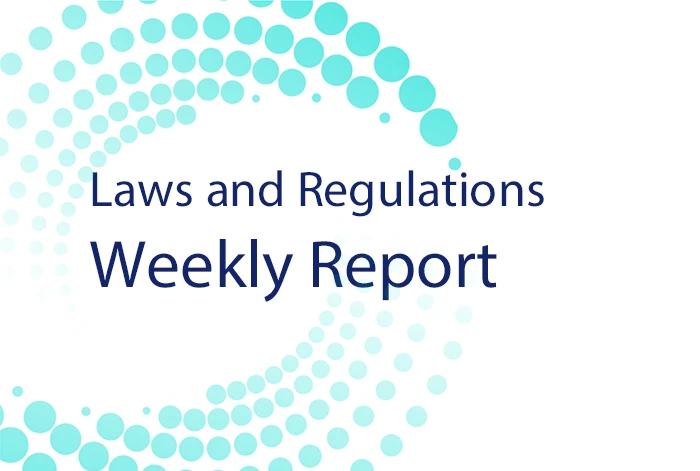
Vape Legal and Regulatory Weekly Report - September 9, 2024
2024-09-09

Vape Legal and Regulatory Weekly Report - September 2, 2024
2024-09-02
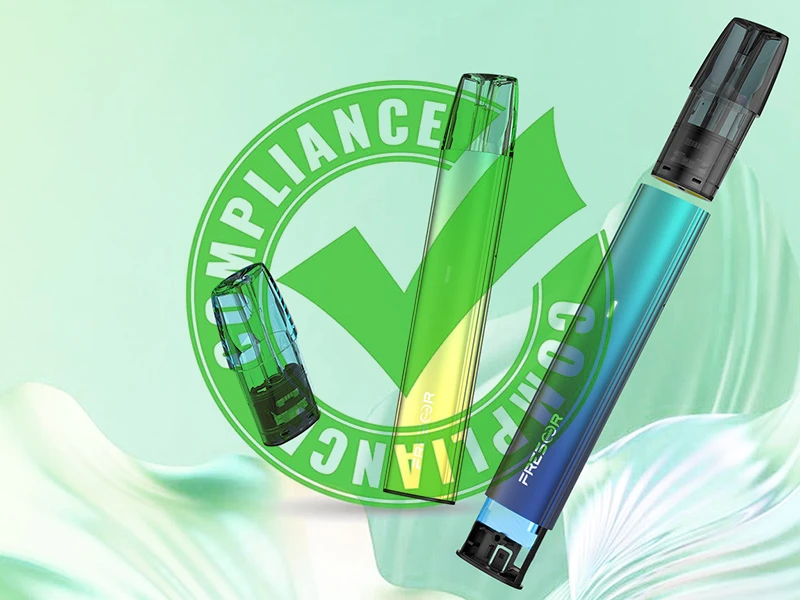
Vaping Laws in Germany: An Update on What You Need to Know
2024-08-12

